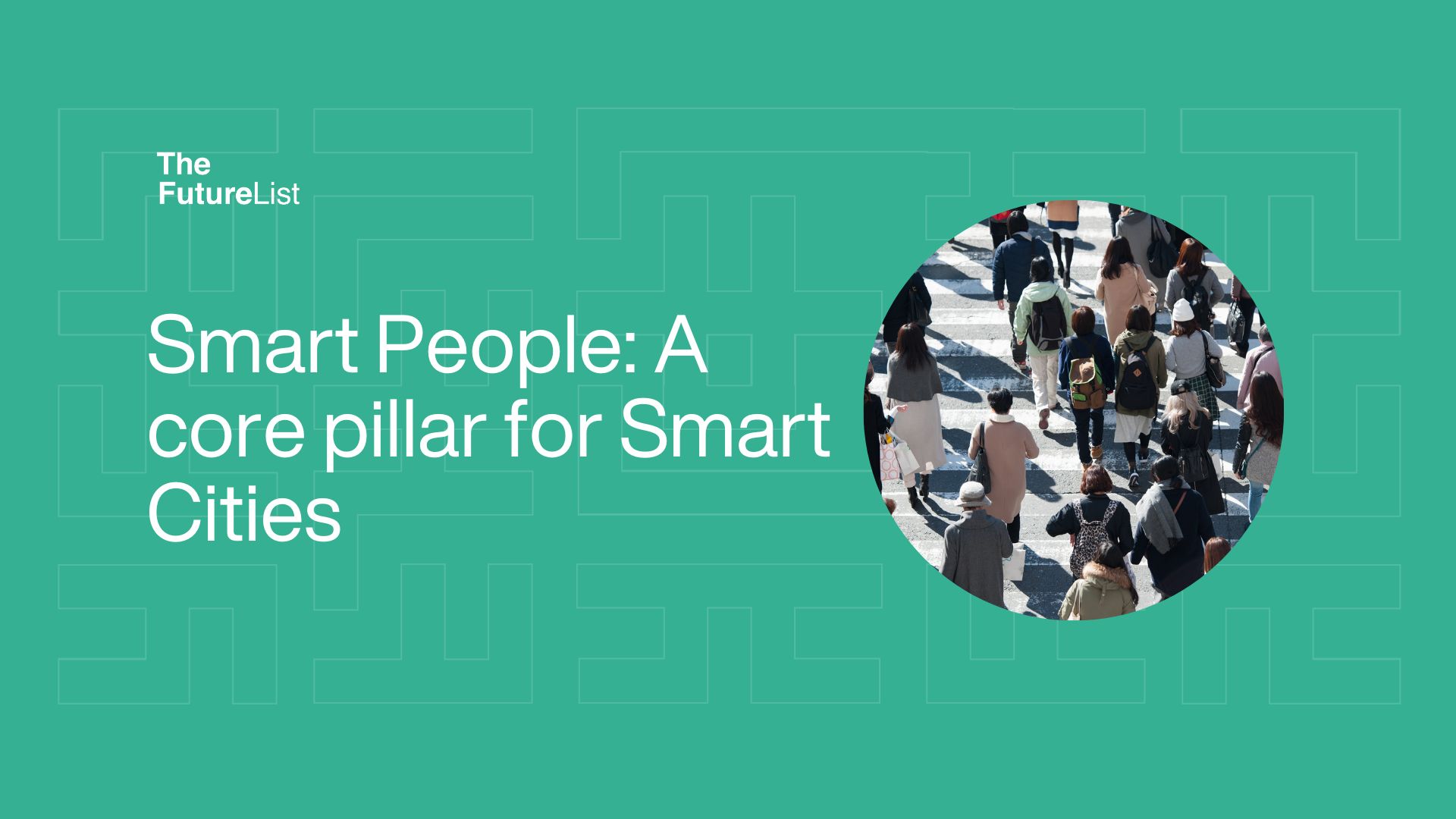
Smart People: A core pillar for Smart Cities
By Henry Duah
The “smart people” pillar is a core element of the smart city framework, focusing on the development and empowerment of citizens’ skills, fostering quality social interaction, and engaging citizens as active participants in city-building efforts. This is significant to Smart Cities development, as the main objective of smart cities development is to enhance the quality of life for residents by optimizing urban functions and services through the use of technology and data. Rather than relying solely on hardware or infrastructure, the smart people pillar emphasises the cultivation of human capital, promoting digital literacy, creativity, innovation, and social inclusion.
In practice, “smart people” means citizens who are digitally skilled, open to innovation, able to collaborate using new technologies, and actively participate in their community’s social, economic, and civic life. This engagement is supported by accessible platforms and public services that enhance learning, interaction, and democratic participation.
Technologies supporting and promoting the Smart People pillar of the Smart Cities Initiative
The smart people pillar elevates smart cities beyond infrastructure to focus on developing an innovative, collaborative, and inclusive citizenry who are supported by digital technology and participatory platforms. Key examples of technologies and ideas promoting Smart People include:
- Digital Literacy Platforms
Digital literacy platforms provide citizens with opportunities to enhance their technology-related competencies through a variety of accessible learning resources. Cities can leverage these platforms to offer online courses, in-person or virtual digital skills workshops, and hackathons that encourage both basic and advanced technical proficiency. By equipping residents with the knowledge to safely and effectively utilise digital tools, these platforms empower people to participate actively in the modern digital economy.
- Open Data Portals
Open data portals make municipal data openly available to the public through intuitive, interactive dashboards. Citizens can easily access information about budgets, environmental conditions, public transport, health statistics, and more. This transparency enables individuals to monitor government performance, participate knowledgeably in policy-making and even develop new data-driven solutions to social challenges.
- Community Engagement Apps
Community engagement apps facilitate direct communication between citizens and city officials. Through these apps, residents can provide feedback, participate in urban planning and decision-making, report local issues such as potholes or broken streetlights, and engage in initiatives like participatory budgeting. By making it easier to voice concerns and contribute ideas, these apps foster democratic participation, ensuring that the community’s collective intelligence helps shape the city’s future.
- E-Government Services
E-government services offer a digital interface that enables citizens to access public services, complete administrative processes, and interact with government departments without physical barriers. Citizens can apply for permits, pay taxes, request official documents, or schedule appointments through user-friendly online platforms. These services reduce bureaucracy, improve government transparency, and make civic engagement more convenient and inclusive, ultimately strengthening the connection between residents and public institutions.
- Social Innovation Spaces
Tech-enabled hubs and innovation labs serve as collaborative spaces where citizens, entrepreneurs, and government officials can come together to co-create solutions for urban challenges. These spaces often provide access to advanced technologies, mentorship, and resources needed to prototype new ideas. By supporting grassroots innovation and cross-sector collaboration, social innovation spaces cultivate a culture of creativity, experimentation, and social impact.
Real-World Examples of Smart People Initiatives
- Jakarta Smart City platforms, including apps like Qlue, enable citizens to report urban issues (such as flooding, waste, and crime) directly to authorities and monitor government performance transparently. The city leverages crowdsourced data and open portals to enhance community engagement and accountability.
- Chicago’s “Connect Chicago” is a major citywide initiative aimed at making Chicago one of the most digitally skilled, connected and dynamic cities in the United States. It is a collaboration led by Smart Chicago and funded through The Chicago Community Trust, bringing together government agencies, nonprofits, and community organisations to expand digital access and literacy across the city.
Get innovation insights from The FutureList weekly. Subscribe to our newsletter here
Categories
- Agritech
- Artificial Intelligence
- Biotech
- Blockchain
- Climate Tech
- Data Infrastructure
- Edtech
- Events
- Fashion
- Fintech
- Healthtech
- Infrastructure
- Innovation Memos
- Innovation Scout Program
- Insight
- Insurtech
- Machine Learning
- Martech
- Mobility
- Music and Media
- Partner Offers
- Perks
- Procurement
- Proptech
- Retailtech
- Ridehailing
- Ridesharing
- Robotics
- Space Aviation
- Supply Chain
- Talent
- Telecoms
- Uncategorized
- Venture Capital
- Wastetech
- Women In Tech
Recent Posts
- The Rise of Physical AI: Intelligence Moving Into the Real World
- Shaping the Future of Medicine: How Tiny Devices Are Revolutionising Vital Body Functions
- The Rural Health Operating System: Reinventing Access to Care in Africa
- Intelligent Grid Monitoring: How IoT and AI Are Powering the Future of Energy
- Innovation Memo with STEMAIDE: Hands-on STEM Education for Young Africans